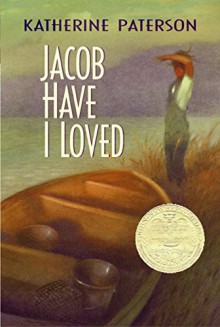
This book is written by the same author of Bridge to Terebithia. That book is the one that gets every reader who loves it pissed off at the end by what happens. Jacob I have Loved is less well known, but no less banned or challenged primary due to language.
Several commenter’s on these posts have pointed out that a book is more likely to get banned or challenged because of a challenge to the power structure, in other words by teaching rebellion. In some ways, this book follows under that category. The book is about the older daughter, one who is not as beloved as her younger sister who is viewed as the better sister. The older sister does eventually rebels, in a sense. She seeks her own path. She rejects dutiful. Perhaps this is the problem.
A good girl is dutiful and obeys parents even if the parents couldn’t care less.
Paterson’s book is in many ways the perfect antidote for an older sibling who constantly is given stories where the younger sibling(s) do something and get all the attention. It is a young adult version Byatt’s “The Story of the Eldest Princess”. It balances the fairy tales, the Harry Potters (Ron is the second youngest in his family), and the stories where it is an only child as opposed to a younger one.
It also shows that is fine to buck tradition and to not be the dutiful daughter (or son) especially when your own status in the family is that of somewhat outcast who can do nothing right. It gives a sense of belonging to another group. Perhaps that it too is bad. We went daughters to be dutiful, and in some cases to give way and time to care for their siblings and/or parents.

 Log in with Facebook
Log in with Facebook 







